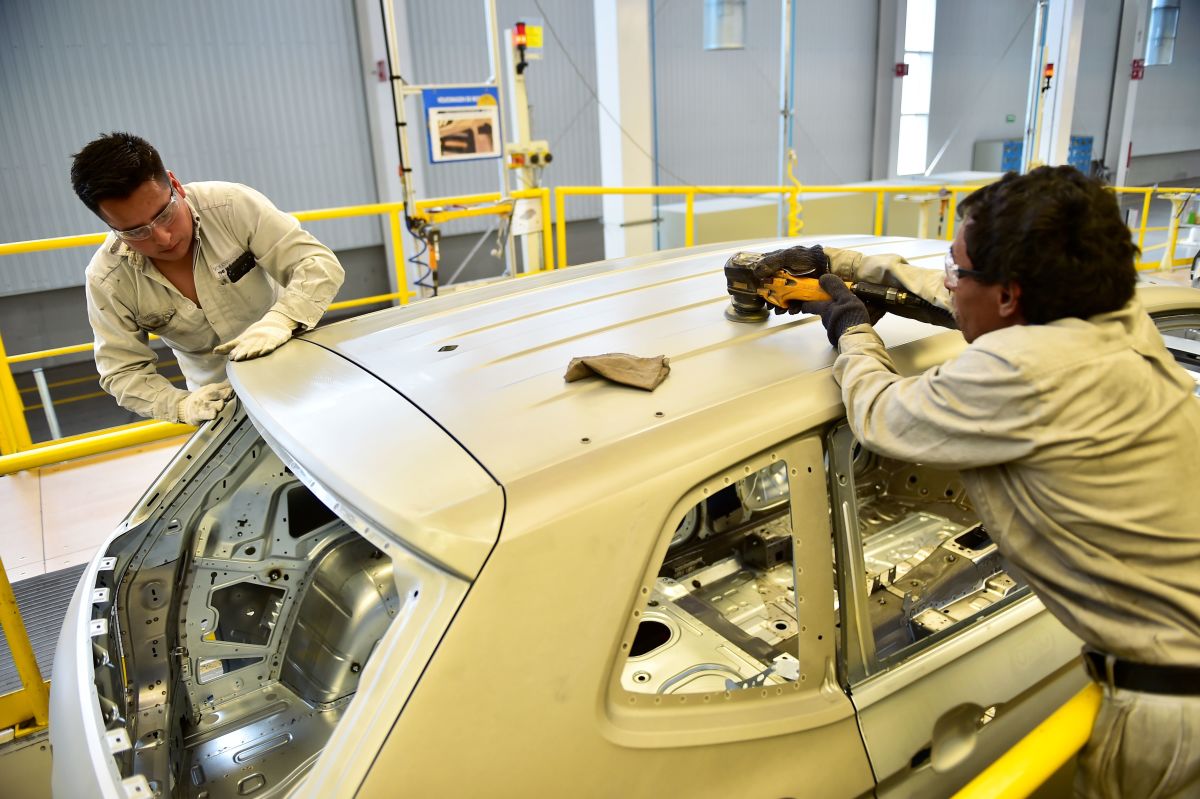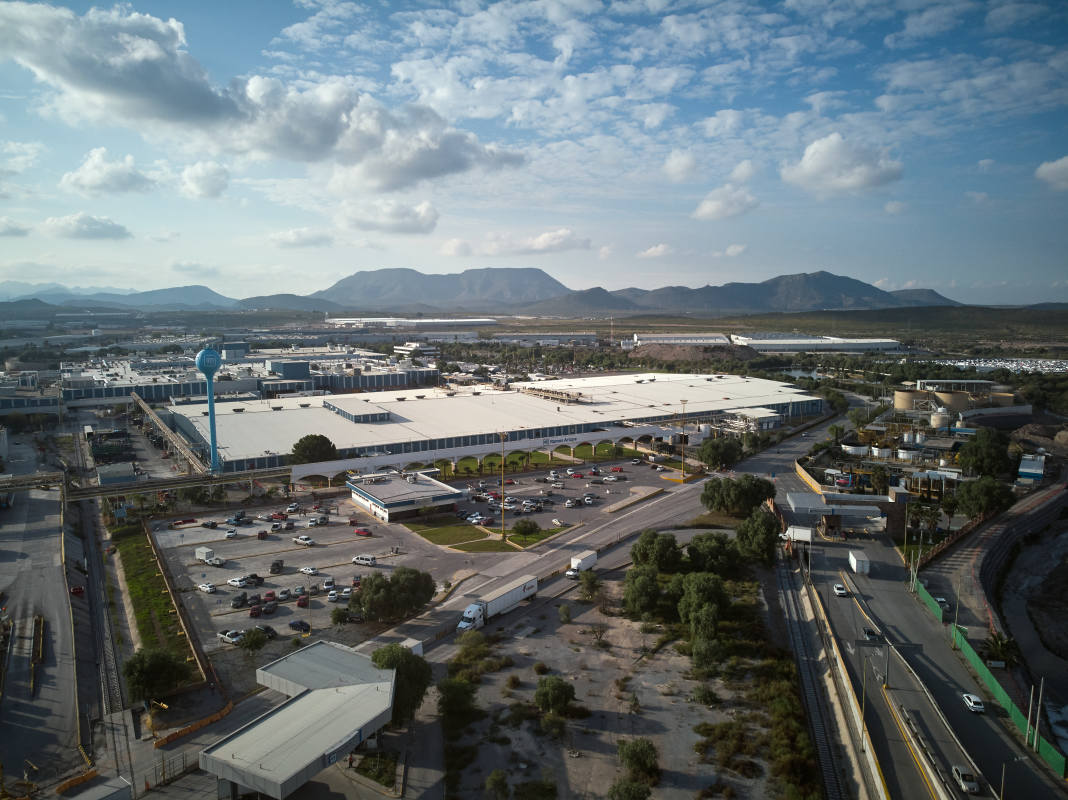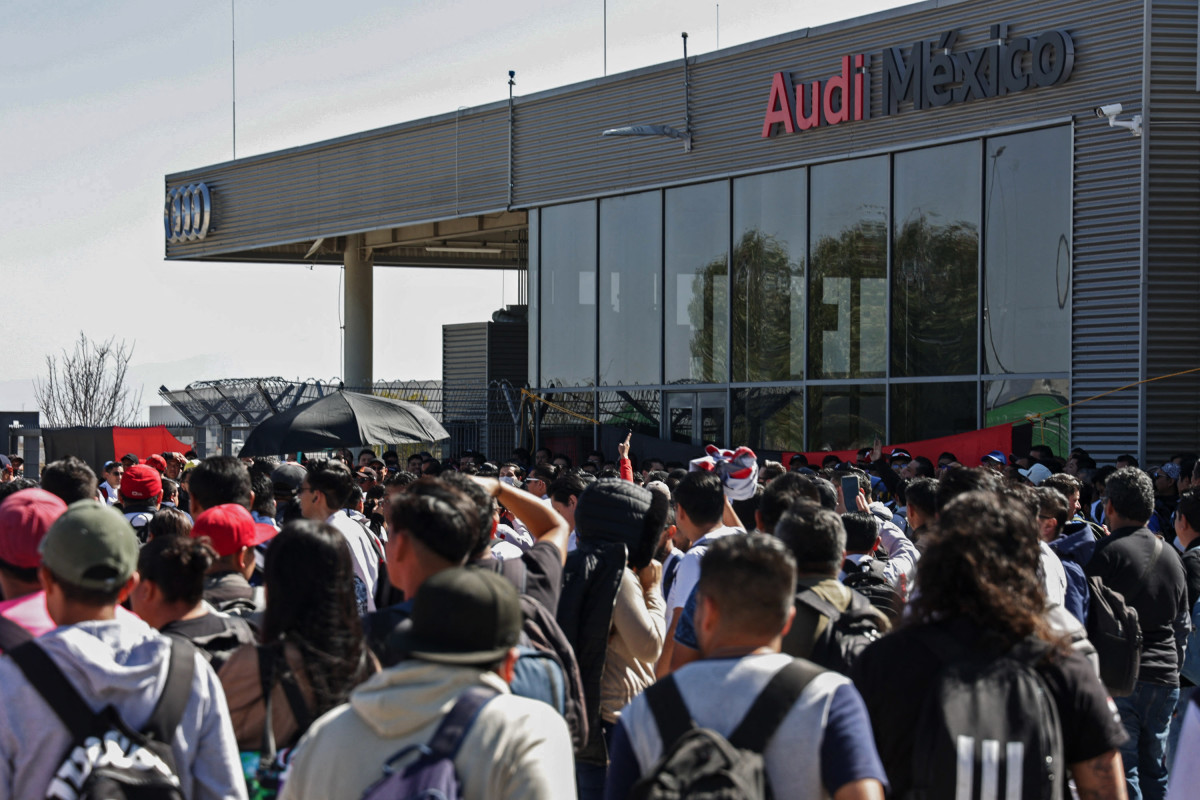President Trump told reporters on Thursday that he plans to impose tariffs on imports from Canada and Mexico on Feb. 1, following through on a major promise from his campaign. The news has sent major automakers scrambling, with some considering significant shifts in their production strategies as they brace for higher costs on imports of vehicles and parts, many of which are produced in Canada and Mexico.
Related: Can Tesla finally deliver affordable electric cars in 2025?
Untangling a complex market
Automakers have woven a complex network of factories across the U.S., Canada, and Mexico. Parts and vehicles often cross borders multiple times before reaching completion. Imposing a 25% tariff at each of these crossings would drive up costs, potentially leading to higher vehicle prices—an unwelcome prospect for U.S. consumers already frustrated by the post-pandemic surge in car prices.

PEDRO PARDO/Getty Images
Some auto parts manufacturers in Mexico and Canada are ramping up overtime shifts and accelerating shipments to the U.S. in an effort to stay ahead of potential tariffs, Ambrose Conroy, CEO of consulting firm Seraph, told The Wall Street Journal. Others are weighing the possibility of shifting production to the U.S. altogether.
General Motors ready to deploy an “extensive playbook”
General Motors, the largest automaker in Mexico, announced this week that it is fast-tracking vehicle imports from Mexico and Canada while also exploring ways to produce more pickups domestically, where it has available factory space. More than a third of GM’s U.S. sales are estimated to come from vehicles built outside the country.

Bloomberg/Getty Images
In response to Trump’s proposed tariffs, GM has developed an “extensive playbook” of potential countermeasures, though CFO Paul Jacobson emphasized that the company would not make any immediate changes unless tariffs became permanent. CEO Mary Barra indicated that GM could shift some pickup truck production from Mexico to U.S. plants and redirect certain vehicles to other markets rather than importing them into the U.S.
GM produced nearly 900,000 vehicles in Mexico in 2024, including popular models like the Chevrolet Silverado, GMC Sierra, and Chevrolet Equinox. These vehicles are among the company’s most profitable, and any tariff could significantly impact pricing and profit margins.
Related: Trump admin moves to roll back Biden-era fuel economy standards
Audi, Porsche consider U.S. production
Porsche and Audi, which currently manufacture all their vehicles abroad, are reportedly looking to shift some production to the United States for the first time. The move is a direct response to President Trump’s stated intention to impose a 25% tariff on car imports, particularly from Mexico and Europe.

DANIEL CASAS/Getty Images
According to German newspaper Handelsblatt, Volkswagen Group is considering utilizing its underused Chattanooga, Tennessee, plant to assemble large Porsche and Audi SUVs. The plant, which currently builds the VW Atlas and ID.4 electric SUV, has available capacity due to a sharp decline in EV demand—ID.4 sales in the U.S. dropped by 55% last year.
Audi is also considering sharing production space with VW Group’s upcoming Scout EV brand at its South Carolina facility. Audi could be developing a rugged SUV based on the Scout platform, currently codenamed “Hardcore,” though this model would not arrive until 2028, CarScoops reported.
Moody’s estimates that the Volkswagen Group could lose up to 15% of its operating profit if the proposed 25% tariff on Mexican imports is implemented. This would impact Audi’s Q5, which is produced in Mexico, as well as VW models like the Jetta and Tiguan.
Related: Court strikes down car dealer junk fee ban, leaving buyers vulnerable
Final thoughts
The threat of tariffs has put the auto industry in a state of flux, forcing companies to explore costly manufacturing shifts while dealing with fluctuating consumer demand. If the tariffs move forward, companies that rely heavily on Mexican and Canadian imports may face difficult choices—absorb the added costs, pass them on to consumers, or fast-track U.S. manufacturing investments.
Related: Infiniti just killed two of its entry-level SUVs